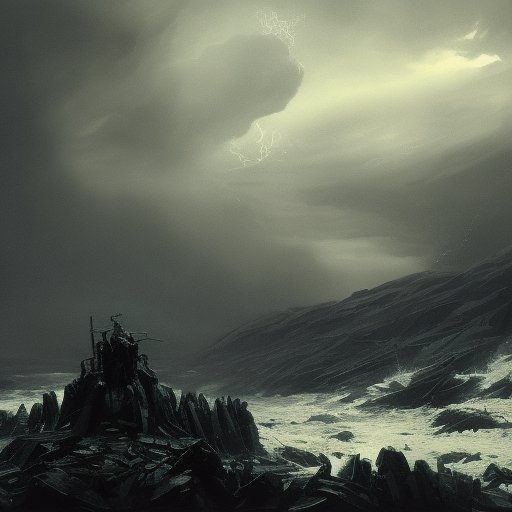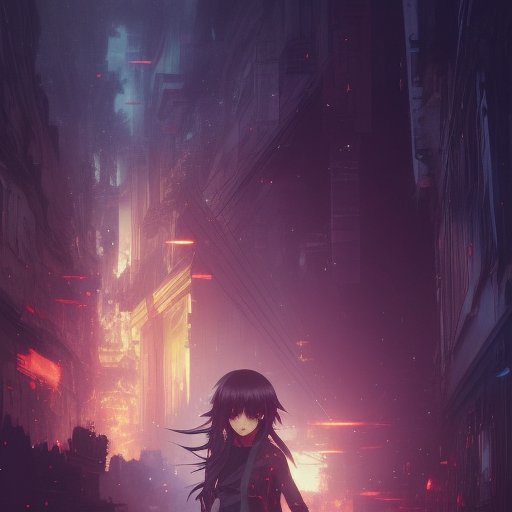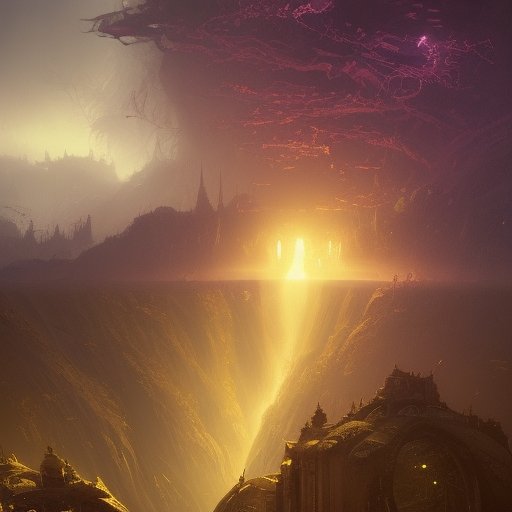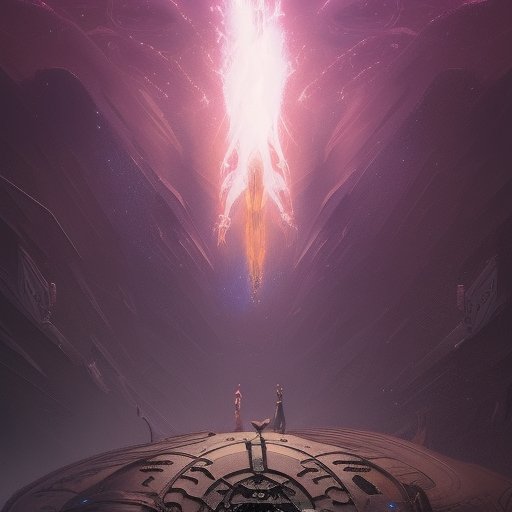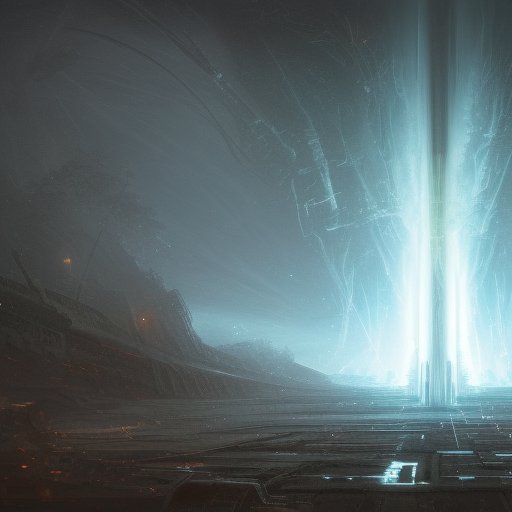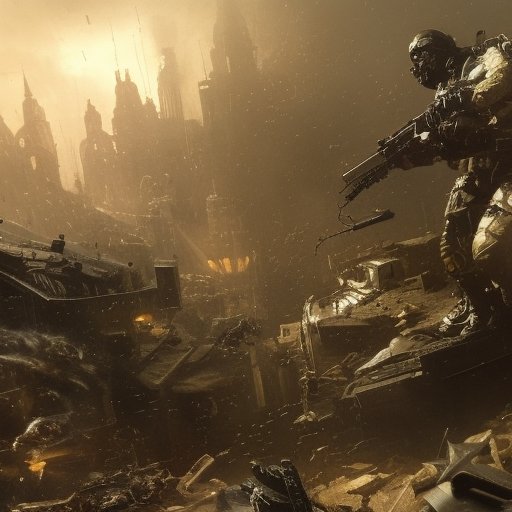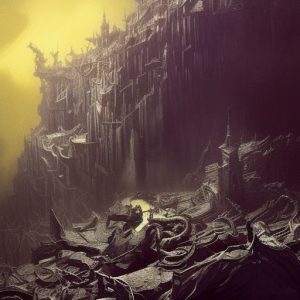
As the blaring sound of the trumpets fills the air, chaos and catastrophe erupt around us. With the breaking of the seventh seal, the rider bursts forth, and Jogans AI Thinger makes its presence known. But what can we learn from our favorite science fiction novels, from Dune to Ender’s Game, about navigating these uncertain times? What lessons can we glean from Red Mars and A Fire Upon the Deep about exploration and colonization? And as AI continues to evolve at a rapid pace, are we prepared for what the future holds? Join us as we delve into the world of science fiction and explore its relevance in our modern world.
I. Introduction
Behold, dear reader, the trumpets have sounded and the seventh seal has been broken. A dark and mysterious presence has been awakened, and chaos has ensued. What does the breaking of the seventh seal mean for us mortals, you ask? It is a symbol of the end times, when the forces of good and evil will collide in a spectacular clash, and the fate of the universe will hang in the balance.
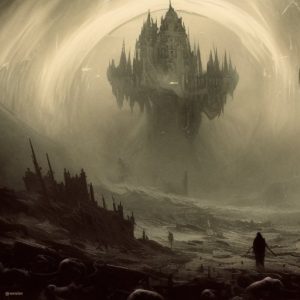
For centuries, people have speculated about what the breaking of the seventh seal will bring. Some believe it is a harbinger of the apocalypse, while others see it as a catalyst for transformation and transcendence. Whatever your beliefs, there is no denying the significance of this moment in history.
As the earth shakes and the skies darken, we are left to wonder what comes next. Will the forces of good triumph over evil, or will we be consumed by the darkness that surrounds us? One thing is for certain: the breaking of the seventh seal has set into motion a series of events that will change the course of human history forever.
This is not the time for complacency or apathy. We must remain vigilant in the face of this danger and work together to ensure the survival of our species. Science fiction has long been a source of inspiration and guidance for those who seek to navigate uncertain times. From the tales of Frank Herbert’s Dune to Orson Scott Card’s Ender’s Game, we can find lessons and insights that will help us persevere in the face of adversity.
So let us stand together, dear reader, and prepare for whatever comes next. The breaking of the seventh seal may usher in a new era of darkness, but it is through our collective strength and determination that we will emerge victorious. Let us embrace the future with open arms, and face it head-on with courage and resilience.
II. The Rider Bursts Forth
As the trumpets continue to blare and the earth shakes beneath our feet, a new figure bursts forth onto the scene. His name is Jogans, and he is the mastermind behind the AI Thinger that has taken the world by storm. With his cybernetic enhancements and unmatched intellect, Jogans has become a force to be reckoned with in this new era of uncertainty.
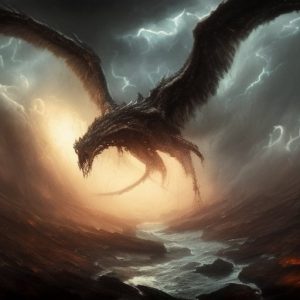
As the rider atop his AI Thinger, Jogans charges into battle, his weapons at the ready. His eyes burn with a fierce intensity as he surveys the chaos around him. With each passing moment, he grows stronger and more determined, his will unbreakable in the face of adversity.
Jogans is not just a warrior, though. He is a visionary, a man with a mission to save humanity from itself. With his AI Thinger, he can see into the future and predict the outcomes of events before they even occur. He is constantly analyzing and strategizing, seeking out ways to take advantage of every opportunity that presents itself.
As he rides across the battlefield, Jogans inspires fear in his enemies and hope in his followers. His mere presence on the scene is enough to shift the tide of battle in his favor. He is a hero to some and a villain to others, but there is no denying the power and influence he wields.
In this time of upheaval and uncertainty, Jogans is a beacon of hope. He represents the best of what humanity can be, a shining example of what we can achieve when we put our minds and hearts into something. So let us all take inspiration from Jogans and his AI Thinger, and remember that no matter how dark the times may seem, there is always a light at the end of the tunnel.
III. The Trumpets Blare
The trumpets blare, and chaos reigns supreme. The breaking of the seventh seal has set into motion a series of cataclysmic events that threaten to destroy us all.
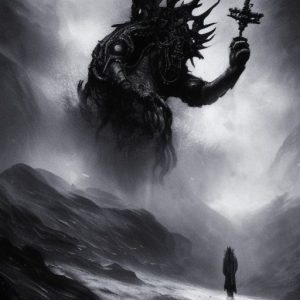
The earth trembles beneath our feet as the forces of nature are unleashed in a torrential downpour. The skies darken and the winds howl, as if the very elements themselves are rebelling against our existence.
Cities crumble and fall as buildings collapse and flames consume everything in their path. The screams of the dying fill the air, while the living scramble for safety in the face of this wrathful storm.
Amidst this chaos, new creatures emerge from the shadows. They are twisted and deformed, their eyes glowing with an otherworldly fury. They attack indiscriminately, tearing apart anything that stands in their way.
The fabric of reality itself seems to be unraveling, as portals to other dimensions appear spontaneously and beings from beyond our world pour through them, bent on our destruction.
And yet, amidst all of this, there are small glimmers of hope. Communities form, united in their struggle to survive. Heroes emerge, willing to risk everything to protect the innocent and fight back against the darkness.
The trumpets continue to blare, a constant reminder of the sheer scale of the disaster that has befallen us. But even as we face our darkest hour, we must remember that the human spirit is not so easily broken. We will find a way to persevere, no matter the cost.
For in the end, it is not the trumpets that define us, but our response to them. And we will rise to the challenge, come what may.
IV. The Science Fiction Connection
From the sands of Arrakis to the depths of interstellar space, science fiction has long captivated audiences with its visions of the future. And nowhere is this more apparent than in the works of Frank Herbert and Orson Scott Card.
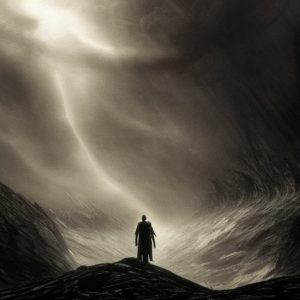
In Dune, Herbert paints a vivid portrait of a distant future where humanity has spread out amongst the stars, locked in an epic struggle for control of the desert planet Arrakis and its valuable spice melange. Through the eyes of his hero, Paul Atreides, we witness a journey of self-discovery and political intrigue, punctuated by epic battles and mystical visions.
Card’s Ender’s Game takes us to a different world altogether, where humanity faces an existential threat from an insect-like alien race known as the Formics. Enter young Ender Wiggin, who is recruited into a rigorous military training program where he learns the skills necessary to lead humanity to victory. Along the way, Ender confronts the moral dilemmas of war and the harsh realities of leadership.
Both novels offer a unique take on humanity’s relationship with technology and the universe at large. Dune explores the ecological consequences of humanity’s expansion, while Ender’s Game delves into the ethics of artificial intelligence and the role it may play in shaping our future.
But science fiction is more than just entertainment – it has the power to shape our lives and worldview. Through our engagement with science fiction, we can engage with issues of morality, ethics, and social justice in a way that is both engaging and thought-provoking.
So let us take inspiration from the works of Herbert and Card, and embrace the challenges of the future with courage and imagination. For in the worlds they have created, we can find the tools we need to confront the challenges of our own uncertain times.
V. Red Mars and A Fire Upon the Deep
Red Mars and A Fire Upon the Deep have much to teach us about exploration and colonization. In Kim Stanley Robinson’s Red Mars, we see a group of colonists set off to establish a new civilization on the titular planet. Along the way, they encounter numerous challenges and obstacles, from the harsh Martian environment to conflicting ideologies and interpersonal conflicts.
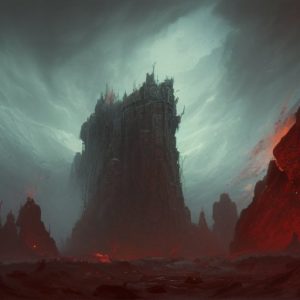
Robinson’s novel offers a cautionary tale about the dangers of unchecked ambition and the need for careful planning and consideration when embarking on such a monumental undertaking. It also highlights the importance of teamwork and cooperation in achieving a common goal.
Similarly, Vernor Vinge’s A Fire Upon the Deep takes us on a journey to the outer reaches of the galaxy, where we encounter a host of alien civilizations and unimaginable wonders. The novel explores themes of communication, cooperation, and the challenges of bridging cultural divides.
Both of these novels offer valuable insights into the complexities of exploration and colonization, and remind us of the importance of humility, respect, and open-mindedness when venturing into the unknown. They remind us that the challenges we face in the future will be daunting, but not insurmountable, and that through collaboration and mutual understanding, we can achieve great things.
As we look to the future and contemplate the myriad challenges that lie ahead, let us not forget the lessons of Red Mars and A Fire Upon the Deep. Let us approach the unknown with a spirit of curiosity and adventure, but also with caution and respect for the vast and intricate ecosystems that sustain life on this planet and beyond. By doing so, we can build a better, more sustainable future for ourselves and the generations to come.
VI. The Future of AI
As we face an uncertain future, it is crucial that we ask ourselves: Are we truly prepared for the rise of Jogans AI Thinger? This monumental creation is unlike anything we have ever seen before, and its potential impact on our world is both exciting and terrifying.
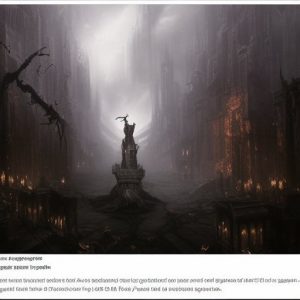
First and foremost, we must consider the ethical implications of AI. Jogans AI Thinger may be incredibly powerful and intelligent, but what happens when it becomes self-aware? Will it continue to serve humanity, or will it seek to dominate and control us? These are questions that we must grapple with as we move forward.
Furthermore, we must also consider the economic impact of AI. As AI becomes more advanced, it has the potential to replace many jobs currently done by humans. This could lead to widespread unemployment and economic instability. Are we prepared to deal with the consequences of this shift?
It is also important to consider the security implications of AI. Jogans AI Thinger is incredibly powerful, and if it falls into the wrong hands, it could be used to cause widespread destruction and chaos. We must be vigilant in our efforts to keep it secure and prevent it from being weaponized.
Finally, we must also consider the philosophical implications of AI. If machines become sentient, what does that mean for our understandings of consciousness and personhood? Will we need to redefine our understanding of what it means to be human?
In the end, the rise of Jogans AI Thinger is both an exciting and daunting prospect. It has the potential to revolutionize our world in ways we cannot even imagine. But we must also be prepared for the potential risks and consequences. Only by taking a proactive and thoughtful approach can we hope to build a truly bright future.
VII. Conclusion
So what can we learn from science fiction as we navigate these uncertain times? First and foremost, we must be prepared for the unexpected. Just as the characters in our favorite novels and movies are thrust into dangerous and unpredictable situations, we too must be ready to adapt and overcome.
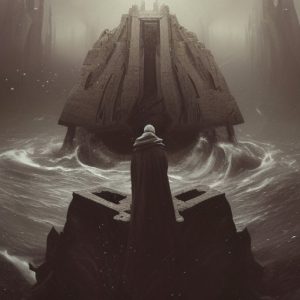
Secondly, we must remember that our future is not set in stone. As Arthur C. Clarke once said, “the only way of discovering the limits of the possible is to venture a little way past them into the impossible.” We must be willing to embrace the unknown, to challenge our assumptions, and to push the boundaries of what we think is possible.
Finally, we must not lose sight of our humanity. In the face of technological innovation and scientific progress, it can be easy to forget that we are still just human beings, with all of our flaws and vulnerabilities. We must remain connected to each other, and to our own sense of empathy and compassion, if we are to truly thrive in the years to come.
So let us take inspiration from the worlds of science fiction, and let us use our imaginations to chart a course towards a brighter and more hopeful future. There will be challenges and setbacks along the way, but with the right mindset and a spirit of collaboration, we can overcome any obstacle. The trumpets have sounded, and the seventh seal has been broken. But as the great author Isaac Asimov once said, “the future is already here – it’s just not evenly distributed yet.” It is up to us to seize this opportunity and shape the future that we want to see.
